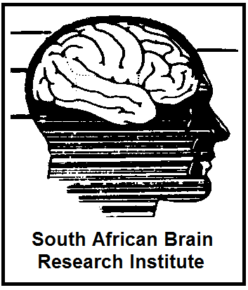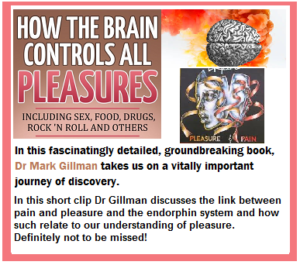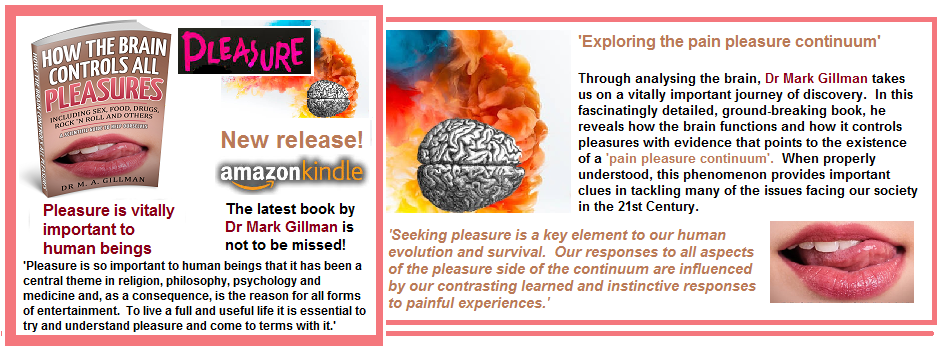‘You can only experience pleasure if you can compare it with something’ – exploring the pleasure center of the brain, pleasure chemicals in the brain and neurotransmitters
Click here to get your copy of the latest book by Dr Mark Gillman!
https://www.amazon.com/dp/B07B21J7JW
How the Brain Controls all Pleasures Including, Sex, Food, Drugs, Rock ‘n Roll and Others is the latest book by Dr Gillman
Discover how through analysing the brain, Dr Gillman takes us on a vitally important journey of discovery involving the pleasure center of the brain, pleasure chemicals in the brain and neurotransmitters. In this fascinatingly detailed, ground-breaking book, he reveals how the brain functions and how it controls pleasures with evidence that points to the existence of a ‘pain pleasure continuum’. When properly understood, this phenomenon provides important clues in tackling many of the issues facing our society in the 21st Century.
‘A journey of discovery around what makes us tick – pleasure center of the brain, pleasure chemicals in the brain and neurotransmitters – exploring the pleasure pathwaysYou can only experience pleasure if you can compare it with something. And the easiest thing to compare it with is pain. While often difficult to bear, we should accept and be grateful for pain or we would be unable to experience pleasure. Remember, when we experience severe pain, things can only get better. Another positive aspect of pain is that it alerts our bodies to some problem which may need attention and treatment
Pleasure and pain seem to be on a biological and philosophical continuum and are merely different faces of the same coin. While most of us prefer pleasure, pain has a useful function, since, without it, life would be very boring and because we would get used to pleasure without having anything to compare it with. And we all know that when we experience the same thing continuously we become bored. Seen in this context, pain, while unpleasant, gives our lives the necessary texture and variation that makes it worth living.
Addiction is played out on the pain-pleasure continuum. The continuum is essential for survival. Consequently, it is dangerous to try and artificially manipulate the continuum by using addictive drugs. By using addictive drugs we are interfering with a system that should largely be left to its own physiological and natural devices. The problem with addiction is that the only sure way of reversing it is by destroying or manipulating the pain-pleasure system which is crucial because of its evolutionary and survival role. It is therefore carefully shielded from any non-physiological artificial influence, either pathological or therapeutic, which explains the intractability of treating addiction. And because we are human and love pleasure, we can see how easy it is to fall into the trap of drug induced pleasure which eventually results in addiction. Further, if we are able to remove the pain-pleasure continuum’s influence such would destroy our ability to experience pleasure.
Pleasure is so important to human beings that it has been a central theme in religion, philosophy, psychology and medicine and, as a consequence, is the reason for all forms of entertainment. To live a full and useful life it is essential to try and understand pleasure and to come to terms with it.
Our understanding of the physiology of pleasure and its relationship to pain should make us more aware of the importance and necessity of pain and pleasure for life’s enjoyment.
Click here: https://www.amazon.com/dp/B07B21J7JW to order this ground-breaking book and continue this vitally important journey of discovery involving the pleasure center of the brain, pleasure chemicals in the brain and neurotransmitters!


